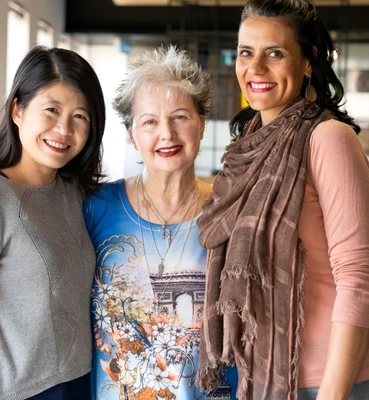Culturally and linguistically diverse communities
Barriers
Understand some of the barriers this community faces to cancer screening.Skip to...

Common barriers
Several focus groups were conducted with members from culturally and linguistically diverse communities to determine the most common barriers they face towards cancer screening. Here are the results:
- Lack of knowledge of the availability, purpose, importance and benefits of screening
- Belief that screening is unnecessary if they experience no symptoms of ill health
- Negative cultural perceptions about cancer – for example fatalistic attitudes (i.e. cancer is the will of God, cancer is incurable, cancer is predetermined).
- Fear, shame and stigma associated with cancer
- Fear and embarrassment around the test
- Language, communication and literacy difficulties
- Availability of female healthcare providers or healthcare providers from similar communities or that speak their language
- Other competing priorities such as employment, housing and family (particularly, newly arrived migrants).
Other barriers identified:
- Beliefs in traditional medicine; lack of belief or confidence in Western medicine
- Stigma and taboos around discussing sexual topics
- Difficulties accessing and navigating the Australian healthcare system (particularly, newly arrived migrants)
- Multiple complex health problems such as chronic diseases and/or physical and mental health consequences of trauma, violence and sexual abuse (particularly, women who have newly arrived as refugees)
- Distrust of healthcare providers due to experiences from their originating country
- Resistance to usage of local health systems due to perceptions or experiences of culturally insensitive services
- Logistical concerns – lack of transport, difficulties getting to the appointment, organising childcare if necessary, cost if bulk billing is not available.
Women who have experienced female genital cutting (FGC)
Women who have experienced FGC may face additional barriers to cervical screening associated with psychological trauma, pain (real or anticipated) and embarrassment. Women who have experienced type 3 FGC (where the labia have been sewn together to make the vaginal opening smaller) may physically be unable to have a speculum examination and may be eligible for self-collection Cervical Screening Test.
